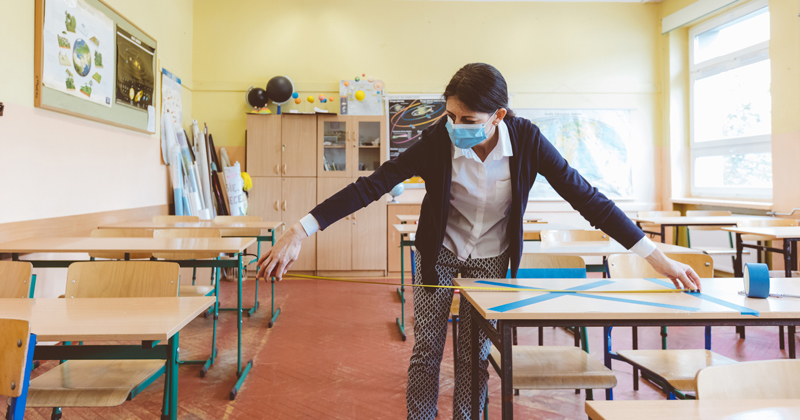The UK Covid-19 Inquiry was set up to examine the nation’s response to the impact arising out of the pandemic. Education was hard-hit, and it is only natural that the inquiry should turn its attention to the sector.
Its latest module of investigation relates to children and young people and will have implications for staff working in all education institutions. The chair may make recommendations following the inquiry’s findings.
A preliminary hearing was held last week and the formal evidence hearings will take place in September, so as this phase of the inquiry gathers pace, here’s what schools and trusts need to know.
What will Module 8 cover?
Module 8 will consider “the impact of the pandemic on children across society including those with special educational needs and/or disabilities and from a diverse range of ethnic and socio-economic backgrounds”.
This includes the decisions made regarding school closures and reopenings, exam cancellations and mitigations, and whether any of those decisions disproportionately impacted young people, made their lives harder or exposed them to a greater risk of harm – as a whole and in sub-groups.
The inquiry also wants to understand if the ongoing consequences of the pandemic and the decisions made during that period.
It will consider its impact on education, transitions, physical and mental health, as well as any other repercussions that arise from the evidence it hears.
Core participants have already been contacted. These are people or organisations with a specific interest in the work of the inquiry. They (and anyone else who is asked for evidence) will assist by providing the inquiry’s chair with information on the decision-making process, who made those decisions and why they were made.
The inquiry will also set out the lessons to be learned for the future.
Rule 9 requests and having your say
The inquiry has sent out Rule 9 requests to individual schools and trusts.
Those contacted could be asked to provide a statement, for example because they assisted the Department for Education or the wider government with the country’s response, both going into and easing out of the pandemic.
You do not have to be a core participant to assist the inquiry. The chair has powers to compel anyone to provide documents or a statement via a Rule 9 request if it deems these individuals or organisations have relevant information to give.
In previous modules, the inquiry has approached a range of individuals, organisations and bodies to provide information, perspectives and, where appropriate, for witness statements and documents pertaining to the issues raised in the course of its work.
How to prepare for participation
Individuals may be approached by the inquiry in relation to a request for documents or a witness statement on behalf of school or trust. If you are, here are some useful points to note:
Official inquiry documentation will be sent to you or one of your schools on behalf of the chair on Covid-19 Inquiry letter-headed paper.
The request for information will be referred to as a Module 8, Rule 9 request.
If you receive a request from the inquiry, you will need to find evidence among the documents you have preserved from the school or trust’s time during the pandemic. This will assist in drafting your response, and the inquiry may ask to see them.
The request will ask for relevant information pertaining to the school, the trust, or potentially to individual schools within a trust.
Usually, this will be in relation to the institution’s actions during the pandemic, the difficulties it faced and how it overcame them.
The inquiry plans to hear evidence for this part of its investigation in London across four weeks from 29 September to 23 October 2025.
Remember, this is simply a request for information. The chair is simply interested to know the experience of educational establishments across the country, not to hold them accountable for it.












Your thoughts